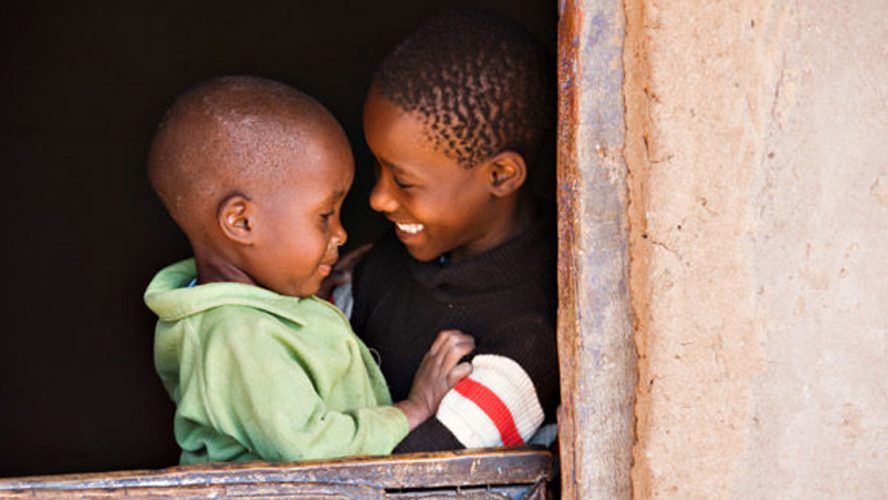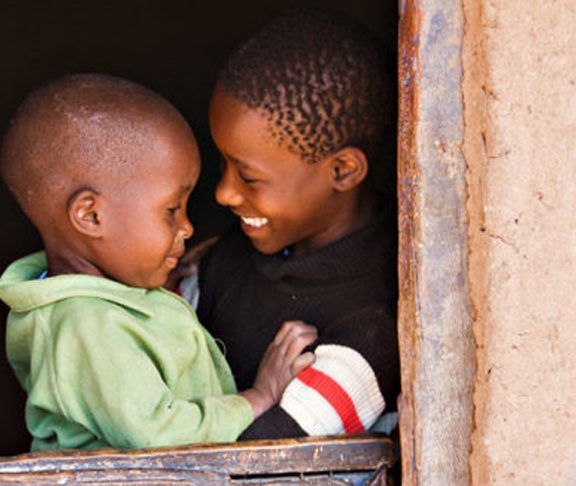Angela Gorman
Chief Executive Officer and co-founder of Life for African Mothers
“It’s my made up word, but says it all. Anyone who is responsible for ignoring the tragedy of catastrophic post-partum haemorrhage is guilty of womanslaughter.”
Picture the scene… it’s 1915 and in a tiny, two-up two-down house in the Welsh valleys, a woman (let’s call her Hannah) goes into labour. Hannah and her husband John have seven children, the youngest is three years old. They have sadly already lost three children, so Hannah is pregnant for the 11th time. John is a coalminer, so life is tough. Despite being pregnant, on a daily basis Hannah has to carry buckets of hot water to and from the stove: all this with young children around her feet. When Hannah is six months pregnant she goes into premature labour ,in a small downstairs room. The baby is born and shows no sign of life. Unlike her previous deliveries, Hannah does not recover immediately. She begins to bleed heavily and within 30 minutes, she is also dead…the cause of death is Catastrophic Post-Partum Haemorrhage.
Fast forward 100 years… it’s 2015 and a pregnant and labouring woman, let’s also call her Hannah, arrives at a UK hospital. She quickly delivers a beautiful baby girl. The mother is given an injection of oxytocin, which is routinely given to all mothers, but continues to bleed. She is given a second medication called misoprostol. An additional blood transfusion brings her body to within what the midwives expect to be the normal state. All is well and 24 hours later, mum and baby return home.
It’s still 2015 and a woman, yes… let’s also call her Hannah, goes into labour in a slum in Liberia’s capital. Thankfully, she makes it to the local hospital and gives birth to a baby girl. All is well to begin with, but then she starts bleeding. Neither oxytocin, misoprostol or blood are available. It is quickly apparent to the midwives that the volume of blood loss is exceeding normal, and despite all their best efforts, Hannah dies 15 minutes after giving life. Cause of death is documented as catastrophic post-partum haemorrhage. Hannah’s mother quickly takes her hungry, crying granddaughter, whom she has named Precious, home to their house in the slum to be raised by the community. Yet, the medication which Hannah in Liberia should have received is out there. So why is it not available, within arm’s reach of the midwives?
So why am I, a retired Senior NHS Nurse, so concerned about the situation for mothers and babies I will never meet?
In 2005, I happened to see a BBC programme about maternal mortality in Chad whose largest hospital was losing at least one mother every single day. It was very clear that poverty was the cause. I contacted the BBC and helped to set up an organisation which would support that hospital. Five months later, I was sat in that very hospital. We raised funds and shipped the key medications needed to save the women’s lives. In a very short time, Dr Grace was reporting to us that where they were previously losing 30-40 women every month, it was now obvious that around 25 of these women were surviving; in the clinicians’ opinion they would have died without our medications being available to them, free of charge.
As I draw to a conclusion, I have one more piece of information.
I return to 1915 and Hannah who died in childbirth having her 11th child; this might hold the key to why I responded to that TV programme as I did. Hannah was a real person; she was my paternal grandmother. She died in a little two-up two-down house in Llwynypia, Rhondda. My father was three years old and grew up without a mother. He was the youngest of seven surviving children. So I grew up, hearing first-hand from my father what it was like not having a mother in the home, and I often wondered why she had died. In 2015, I made it my mission to get a copy of her death certificate. The cause of her death was recorded as follows: –
Premature labour* and catastrophic haemorrhage following delivery.
*this in itself is not a direct cause of death, but I spent most of my nursing career, caring for premature babies
So without ever realising it, I have been heading up a small organisation which is providing medication to women, who in the 21st century are dying from the catastrophic condition which killed my grandmother over 100 years ago. And the cost of that medication? Just around 50p per woman… less than the cost of a 1st Class Stamp.
The title of womanslaughter? That’s my made up word, but says it all. Anyone who is responsible for ignoring this tragedy, or misusing resources which should have been used for improving maternal health is, in my book, guilty of womanslaughter.
Website: www.lifeforafricanmothers.org
Facebook: Life for African Mothers
Twitter: @Life4AM

